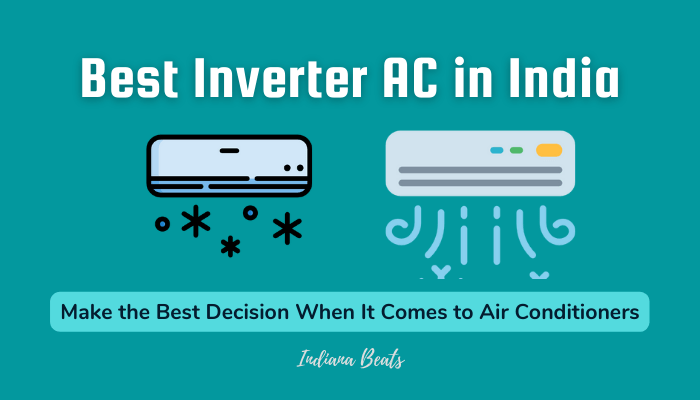Mobile air conditioners, duct air conditioners, compact air conditioners, and mono or multi-split air conditioners are available. The vocabulary used to describe the many types of air conditioners can be as challenging to comprehend as the technology underlying this equipment. We lay down the key differences and compare air conditioners to help you navigate the options and pick which Air Conditioner is right for you.
1. Central AC
This air conditioner is ideal if you have ample space and want to chill multiple rooms simultaneously. A split system regulates the air through the ducts installed in your area in a central air conditioning unit. A ducted system is also known as a ducted system.
The split aspect denotes that the system comprises two main components. The condenser and compressor are housed in this external device. The evaporator coils and the air handler are found in the indoor unit. The central air conditioner uses refrigerant to remove heat from the indoor air, much like any other air conditioner. Outside, the heat is evacuated, and chilly air is pulled in through the ducts. Programmable thermostats can be used with central air conditioners to create an innovative home experience.
2. Mini-Split with No Ducts
A ductless mini-split air conditioner is a wonderful alternative if you want more efficiency, want to avoid a lot of ducting, or want to cool a piece of your room. This type of air conditioner consists of an outside unit with a compressor and condenser connected to one or more indoor units. These indoor units are wall-mounted and come with fans. Pipes connect the interior and outdoor units, and refrigerant circulates through them in different ways depending on the type of application.
Because these indoor units are small and compact, each room often has its unit for heating and cooling. These air conditioners are believed to be far more energy-efficient than some of the other alternatives available, but they can be costly if you plan to place one in each room to cover a large area. Ductless mini-splits come with remote control, but with the addition of an intelligent AC controller, you can manage them from anywhere with your phone!
3. Smart ACs
Smart air conditioners are Wi-Fi-connected air conditioners with a native app that allows for worldwide control via a smartphone. These air conditioners come with various functions, depending on the manufacturer. Weekly scheduling, geofencing, comfort mode, temperature range control, and other parts are among them. You can get fantastic comfort as well as energy savings by using them.
Commercially accessible smart HVAC controllers deliver all of the capabilities of a smart HVAC to any standard ducted unit. They function similarly to programmable thermostats and are less expensive than smart air conditioners.
4. A geothermal heating and cooling system
Geothermal heating and cooling is a relatively recent approach that utilizes the earth’s insulating characteristics. Geothermal technology takes advantage of the fact that temperatures below 4 to 6 feet of ground remain constant throughout the year, regardless of the weather, to heat and cool your home more efficiently.
This system includes a pipe with a circuit that circulates water between your home, a heat pump, and the ground. To settle underground requires a lot of effort.
5. Inverter ACs
Air conditioners are a necessary evil. They keep us cool in the summer, but they also have a hefty price tag. You have to pay for the unit itself, but you also have to pay for the electricity to run it. That’s why so many people are searching for ways to save money on their air conditioning bills. One way to do this is to purchase an inverter AC. Inverter ACs are more expensive than traditional units, but they are also more energy-efficient. This means that they will cost less to operate over the long term, making them a wise investment for anyone who wants to save money on their cooling costs. Read below to find out why you should consider investing in the best inverter AC 1.5 ton.
Pros
There are many reasons why people choose to install an inverter air conditioner in their home or office. Perhaps the most significant advantage of these units is that they are far more energy-efficient than traditional models. This is because inverter units detect and adapt to changes in room temperature, automatically adjusting the speed and power output of the team accordingly. This means that owners can save money on their monthly utility bills, making these air conditioners much more environmentally friendly. In addition, these units tend to be quieter and last longer than non-smooth alternatives, making them an excellent choice for anyone looking for a reliable air conditioning solution. Whether you are looking to improve your home’s energy efficiency or stay cool during those hot summer months, an inverter air conditioner is suitable for you!
Cons
Inverter air conditioners are one of the most popular climate control systems on the market today. They offer several benefits, including energy efficiency, quiet operation, and customizable cooling options. However, despite their many advantages, inverter air conditioners also have significant disadvantages. For one thing, they tend to be more expensive than traditional units. In addition, they can put a lot of strain on the electrical wiring in your home, particularly if you have an older or less robust system. Finally, inverter air conditioners can sometimes be too powerful for smaller rooms or spaces that aren’t so well insulated. Overall though, the benefits of these modern cooling systems outweigh the downsides. Whether you want to stay comfortable in summer or save money on your power bills year-round, investing in an inverter air conditioner is wise.
Also Read:
